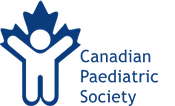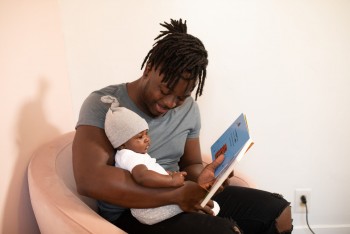Parenting during COVID-19: A new frontier
Posted on March 27, 2020 by the Canadian Paediatric Society | Permalink
Topic(s): Public education, COVID-19
By Kassia Johnson, MD, FRCPC
As parents before COVID-19, we were supporting our children’s learning, ensuring they were eating “the right” foods, getting enough sleep, not hurting themselves or others, and not having too much screen time. At the same time, we were working, paying the rent/mortgage, buying food, and feeling like we had to do it all. NOW we have to do it all because school is closed and our children are home with us ALL day!
Take a breath.
Parenting at any time is challenging. Parenting during COVID-19 is even more stressful. Many people are confused, worried and afraid. Know that you are not alone. There is a lot of good and bad information about what is happening right now and what will happen in the future. Know that COVID-19 too shall pass. We will get back to regular activities eventually, but we might also see this as a gift of time to do things with our children that we have been too busy to do (within the confines of social distancing) or as as a time to make changes in our parenting.
The bottom line is that parenting during COVID-19 looks different. Our children are with us for more hours in the day than normal, and while this can bring new stresses, it can also bring new opportunities.
It is not going to be easy, but what if we focused on what we CAN do instead of what we can’t? We can support our children’s health, learning and development even if we can’t be their teachers. We can rebuild relationships with ourselves, our children, our families and our communities even if we can’t be out and about. We can do this if we work together, take it one step at a time, and focus on eating well, sleeping well and playing.
COVID-19 has removed the new-found freedom of many young people. Newly acquired driver’s licenses, new jobs, burgeoning love affairs and the thoughts of being independent are suddenly on hold indefinitely. Finding small ways to provide opportunities for choice and independence is one way we can support teens during this time of self-isolation.
Children and adults thrive on routine. Developing a daily rhythm as opposed to a rigidly timed day will help everyone predict what is happening next. Younger children often have better attention and focus in the morning, while teens tend to focus better in the later afternoon/evening time. Be sure your rhythm includes meals, play time, bedtime routines and conversations to check in with each family member about how their day or week is going.
There are many websites with countless ideas on keeping children busy and engaged in the day, but facing many hours of this each day is daunting. Take it as it comes; do your best; reach out for help; offer others help. And remember, you can always stop, take a breath, apologize, and start over.
We often talk about setting goals, making resolutions and changing our behaviours, then we feel disappointed when we don’t make these changes. So how about as we are parenting together through COVID-19, we think about setting one goal for ourselves, our families and our children. Here are some ideas that come to mind:
- Try to connect (virtually of course!) with friends or extended family every few days for healthy and safe conversations that will provide support for you and your family.
- Read a book with your child(ren), or have them read to you. Listen to an audiobook online, CBC has curated a collection of Canadian authors reading children’s books online.
- Build a learning community for your children where they can see friends online, have family members tell them family stories, or have older cousins speak a different language with them. These are all helpful and safe ways to support learning and build family/community connections.
- Let your children choose a new activity for you to do with them. They will enjoy the time you are spending with them and maybe you can both learn something new. Every family member could put an idea into a jar, and then once a day or once a week an activity could be removed and completed as a family.
COVID-19 is creating a new world for everyone. Maybe we will remember how interconnected we are and how we each affect one another. Let’s support one another as parents instead of trying to out-parent each other. Let’s focus on making our children feel safe and secure, supporting their independence and validating their feelings. Maybe when we do these things we will come through this remembering or developing a new understanding of who our children are and what they mean to us.
Recognize that if and when you are struggling to keep yourself and/or your children safe during this stressful time, please reach out to friends, family, your family physician or other supports in your community such as public health. You can get the help that you need to keep you safe.
Dr. Kassia Johnson is a developmental paediatrician in Hamilton, Ont., a member of the Canadian Paediatric Society’s Early Years Task Force, and a mother of two.
Copyright
The Canadian Paediatric Society holds copyright on all information we publish on this blog. For complete details, read our Copyright Policy.
Disclaimer
The information on this blog should not be used as a substitute for medical care and advice. The views of blog writers do not necessarily represent the views of the Canadian Paediatric Society.
Last updated: Apr 20, 2020


